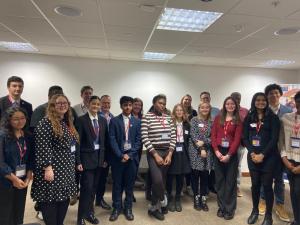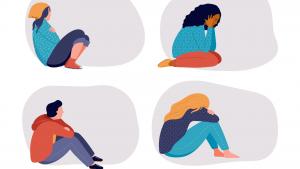Boris Johnson has this week established three new cabinet committees on Brexit, and one on the whole of the domestic policy agenda. This is a clear indication of the dominance of this one issue for our new Prime Minister.
During the leadership election I gave a speech to launch our 3rd Childhood Vulnerability Report where I highlighted that neither candidate had spoken very much about children except in reference to schools. The Education Policy Institute this week found that the gap in GCSE attainment between disadvantaged pupils and their peers has stopped closing. By the time they leave secondary school, disadvantaged pupils are now over a year and a half behind. The most disadvantaged pupils are now almost two years behind their classmates.
The Department of Education’s own Children in Need review shows there are 1.6m children in England – one in ten – who have needed a social worker in the past six years. Four fifths will not get GCSE English and Maths, which will seriously limit their chances of getting on in life. The Department was right to undertake this analysis. We now need to see what action they will take.
My office has undertaken its own analysis of childhood vulnerability. There are 2.3 million children in England from a vulnerable family background, that’s 6 children in the average classroom.
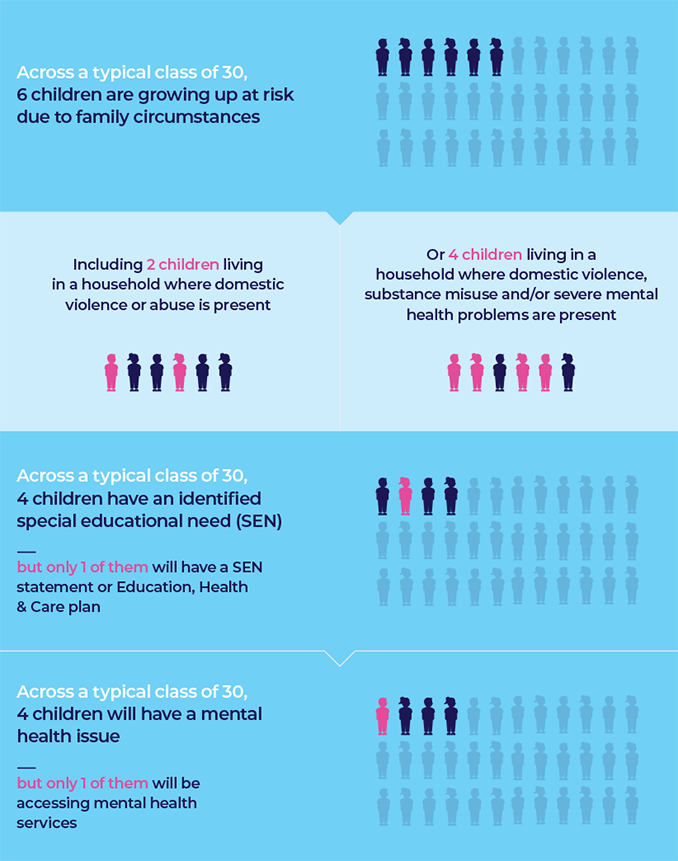
We have identified 1.6 million children from a vulnerable family background for whom state support is either patchy or non-existent.
All children at risk due to family circumstances: 2.3 million
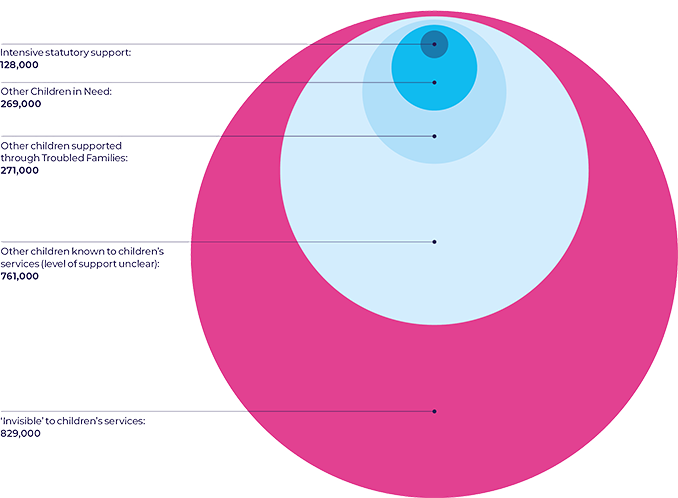
Many of these children will end up in crisis – in care, in mental health or young offender institutions, in pupil referral units and street gangs. We know how to help these children, but at present the state is not stepping in until they hit crisis point – or hit the headlines. Our research has found that 7% of funding is going on 0.1% of children, in the most expensive settings. The human, social and financial cost of our inaction is immense.
Percentage of children accessing services
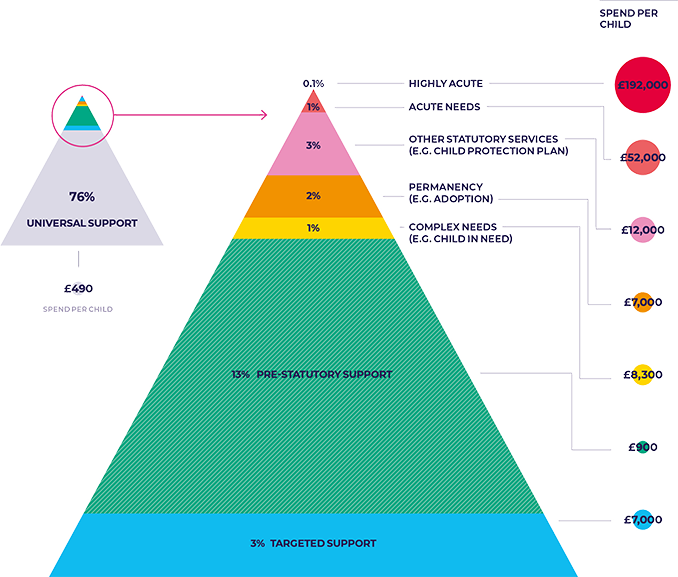
I think there should be just one more cross-government cabinet committee: a committee for children. This Government and those who wish to take its place if there is a general election should finally make children a priority. I have been clear that tackling these complex and generational problems will not be cheap. That is why I think it will cost £10 billion commitment to fix the safety net for these children. This is not unrealistic. The Prime Minister has made tax cut pledges of the same magnitude. The Labour Party has made many similar spending commitments, like scrapping tuition fees.
The LGA has already said £3.1bn is needed just for children’s social care to stand still, plus £1.6bn needed for special educational needs support. This is what I call filling the potholes in existing support, it is not expanding support to the millions of children who need help but don’t get it. But more of the same is not an option. We need to invest in early help so that fewer children end up in crisis in higher cost services. And we need to support children, their families and communities to give them the best chance in life – to be healthy and safe, to do well at school and to get a stable job when they reach adulthood.
The Prime Minister has rightly talked about levelling up per pupil funding in schools and levelling up across Britain. He is absolutely right to prioritise these things. We also need to level up the opportunities for these invisible children who are being left behind. Now Boris Johnson has the chance and the position to really address that need for those children. As Children’s Commissioner I will continue to speak up for vulnerable children and fight for their right to a happy, healthy and safe childhood. I hope Boris Johnson will join me.




